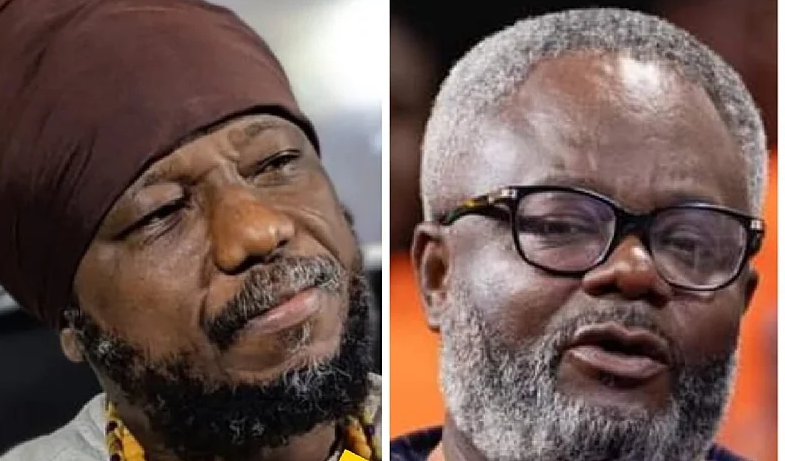The tragic crash of a military helicopter in Ghana’s Ashanti Region on August 6, 2024, ignited a firestorm of controversy, not only due to the loss of eight lives, including two Cabinet Ministers, Dr. Omane Boamah and Dr. Ibrahim Mohammed, but also because of the insensitive and politically charged remarks made by Kofi Akpaloo, leader of the Liberal Party of Ghana (LPG). Akpaloo’s comments, delivered on Wontumi TV, linked the crash to former President Mahama’s alleged lies to cocoa farmers, suggesting the helicopter crashed into a cocoa farm as a consequence. He further exacerbated the situation by minimizing the tragedy, rhetorically asking what the “big deal” was about the deaths of these men, even in the context of other child fatalities. This callous disregard for human life and blatant attempt to exploit a national tragedy for political mileage drew swift and severe condemnation from across the country.
Blakk Rasta, a highly respected media personality, responded to Akpaloo’s statements with unrestrained fury, denouncing him as an “idiot” and a “fool” for his reckless pronouncements. Rasta’s criticism went beyond simply censuring Akpaloo’s words; he questioned the politician’s moral fiber, accusing him of exploiting the tragedy for political gain and demonstrating a profound lack of basic human decency. The public reaction to Akpaloo’s comments was equally negative, with widespread outrage and condemnation expressed on social media and other platforms. Many Ghanaians viewed his statements as not only disrespectful to the deceased and their families but also as a cynical attempt to capitalize on a national tragedy for political expediency.
The helicopter crash, a devastating event in itself, became a focal point for broader discussions about the state of political discourse in Ghana. Akpaloo’s comments highlighted the growing trend of political opportunism, where individuals seek to exploit sensitive events for personal gain, regardless of the emotional toll on the nation. This incident served as a stark reminder of the need for responsible and empathetic leadership, especially during times of national mourning. The public’s reaction, especially the strong condemnation voiced by figures like Blakk Rasta, underscores the expectation for politicians to uphold a certain standard of decorum and respect, even amidst political disagreements.
Akpaloo’s attempt to connect the helicopter crash to former President Mahama’s policies regarding cocoa farmers was viewed by many as a baseless and inflammatory tactic. This kind of political maneuvering, where complex issues are reduced to simplistic and often misleading narratives, contributes to the polarization of public opinion and hinders meaningful dialogue. The tragedy of the helicopter crash, which should have been a moment of national unity and reflection, was instead marred by political bickering and accusations, further highlighting the fragility of the political climate in Ghana.
The incident also sparked a debate about the role of media in amplifying divisive rhetoric. While Wontumi TV provided Akpaloo with a platform to express his views, the subsequent dissemination of his comments, particularly through social media, contributed to the widespread outrage. This raises questions about the responsibility of media outlets to exercise editorial judgment and to avoid giving undue prominence to inflammatory and unsubstantiated claims. The widespread condemnation of Akpaloo’s statements, however, also demonstrates the power of public opinion to hold individuals accountable for their words and actions.
The aftermath of the helicopter crash and the subsequent controversy surrounding Akpaloo’s comments serve as a critical juncture for Ghanaian society. It presents an opportunity to reflect on the values that underpin the nation’s political discourse and to reaffirm the importance of respect, empathy, and responsible leadership. The incident underscores the need for a more nuanced and informed public conversation, one that transcends partisan divides and focuses on addressing the real challenges facing the country. The strong public reaction against Akpaloo’s remarks, coupled with the voices of prominent figures like Blakk Rasta, offers a glimmer of hope that Ghanaians are willing to hold their leaders accountable and demand a higher standard of political discourse.


